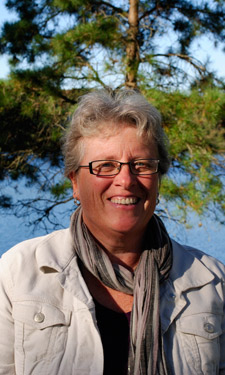 As director of parks, recreation, and cemeteries for Yarmouth, Massachusetts, since 1986, Pat Armstrong has experienced and seen firsthand many of the challenges and trends of the park and recreation industry for nearly three decades. Her tenure puts her in a unique position to provide guidance for a number of NRPA networks and committees, and she has served on several in her 20 years as a member. As a result, NRPA staff often lean on her for her institutional memory and advice. Here, she talks about her experience with NRPA and her motivations for continuing to volunteer.
As director of parks, recreation, and cemeteries for Yarmouth, Massachusetts, since 1986, Pat Armstrong has experienced and seen firsthand many of the challenges and trends of the park and recreation industry for nearly three decades. Her tenure puts her in a unique position to provide guidance for a number of NRPA networks and committees, and she has served on several in her 20 years as a member. As a result, NRPA staff often lean on her for her institutional memory and advice. Here, she talks about her experience with NRPA and her motivations for continuing to volunteer.
P&R: What NRPA committees have you served on, and what has your work involved?
Pat Armstrong: To start, I was on the program committee for the New England Training Institute in Falmouth [Massachusetts] in 1998. I’m now in my fifth year on the Congress program committee, which I absolutely love—it’s one of the best committees I’ve ever been involved in. I began as the New England regional representative when we still had regions and sections. When my term ended and we restructured, I stayed on as a member at large, and I am now the chair of the allocation slots committee. My job there is to make sure that the sessions that are being presented at Congress are put into the correct timeslot and that the slots have diversity so there’s something for everyone at every hour at Congress.
P&R: Please discuss your work with the New England Leadership Network.
Armstrong: I became involved as a community representative for the Massachusetts Recreation and Park Association back in 1987-1988. From there, I became the president of MRPA, and from 1993 to 1995, we went through a restructuring and hired an executive director. Since then, I have remained involved as the treasurer for the association. I was also chairman of the New England regional council in 2005 and 2006, where I sat on the forum as well as on the Administrators’ Network executive committee.
P&R: Tell us more about the Administrators’ Network.
Armstrong: The Administrators’ Network was a fabulous opportunity to help with the transition of NRPA from regions and sections into this new networking. This was one of the lead groups and the largest section of NRPA that helped lead the transition to the networks. We were called upon to give feedback to recommended changes and to bring changes to members to make sure these were what they wanted before they were implemented by the Board.
P&R: What motivates you to continue to volunteer in so many different capacities within NRPA?
Armstrong: Volunteers really make my job so much easier. My parents were volunteers, and growing up as a family we volunteered for many things, so it was part of my upbringing to become involved. I think parks and recreation is such an important agency of every community…We need to give back because we ask so many people to give to us. It’s just the right thing to do.
Seeing this national association and having the opportunity to meet so many diverse professionals from around the country was a real motivator to try to get to Congress and start attending. At the first one, I was just overwhelmed with the knowledge and all the people and energy there. I’ve been at the Legislative Forum for the past eight years, and I’ve made close friends with a couple of chiefs of staff from some of the Massachusetts contingent in Washington, which has been beneficial to our community in getting funds. It’s also been pretty beneficial to me—one of them lives four houses down the street and found me my new house! Now we walk our dogs together every morning.
P&R: Anything else you’d like to share?
Armstrong: Because of my involvement with NRPA, I think our community has benefited tremendously. I feel that no idea is a new idea, so being exposed to so many people through the educational opportunities and social networking that NRPA offers has really drawn a new level of service to our community.
Interview by Danielle Taylor, Associate Editor, Parks & Recreation.

